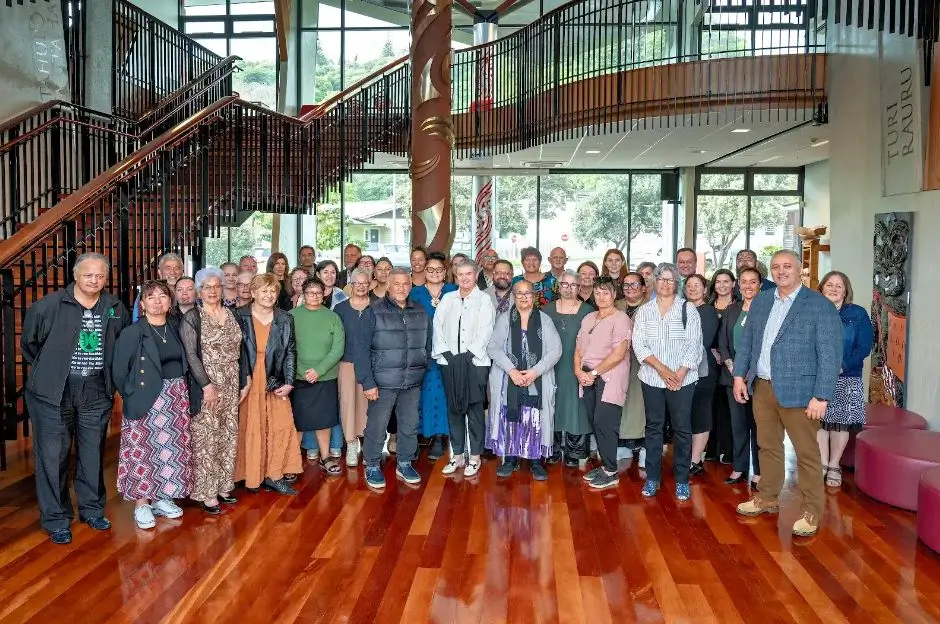This is a joint release from Te Taura Ora o Waiariki IMPB (Te Arawa), Te Tiratū IMPB (Tainui Waka, Ngāti Haua & Mātāwaka), Te Moana a Toi IMPB (Bay of Plenty), Tūwharetoa IMPB and Te Pūnanga Ora IMPB (Taranaki)
Unveiling Community Health Plans & Hauora Māori Priorities
A third of the Iwi Māori Partnership Boards including five from the Te Manawa Taki region have united in Whakatāne to present their Community Health Plans to government officials, fulfilling their legislated function on behalf of Iwi, hapū, and whānau.
As part of the reset of Te Whatu Ora Health New Zealand, Newly appointed Deputy CE and Regional Director, Catherine Cronin received the Community Health Plans and Hauora Māori Priority Reports highlighting Whānau Voices.
This information was gathered from whānau, hapū and hapori to shape individual IMPB priorities and consolidated into regional priorities to tackle the ‘grim picture’[1] of the state of Māori-health.

Front row: All the Chairpersons of 5 IMPB Boards standing with Deputy CE and Regional Director, Catherine Cronin (centre) at Te Whare Wānanga o Awanuiārangi / Supplied
“The purpose of our collective is to mahi tahi – to work together- to achieve the health and wellness aspirations of our whānau,” said Kataraina Hodge, Co-Chair of Te Tiratū IMPB.
Collectively, the 6 boards serve a combined Māori population of 285,560.
“Our role is not only integral, but fundamental to the success of Te Whatu Ora Health New Zealand and the system’s responsiveness to Māori health needs,” said Louisa Wall, Chair of Tūwharetoa IMPB.
The IMPB are responsible for assessing, monitoring, planning and represent local Māori perspectives on the design and delivery of services and public health interventions within localities.[2]
Their shared priorities focus on public and population health, primary and community care, hospital and specialist services and priorities, workforce, data and funding appropriation for a redesigned delivery model.
“We are all experiencing the same levels of high health need for our whānau so the strategic emphasis into the prevention and health promotion space is essential to make meaningful progress,” Hodge said.
Each IMPB collected the voices of whānau through workshops and surveys, blending these insights with data from Te Whatu Ora and Primary Health Organisations to develop comprehensive, evidenced-based reports for each rohe.
This effort upholds the IMPB’s statutory responsibility in their relevant localities.